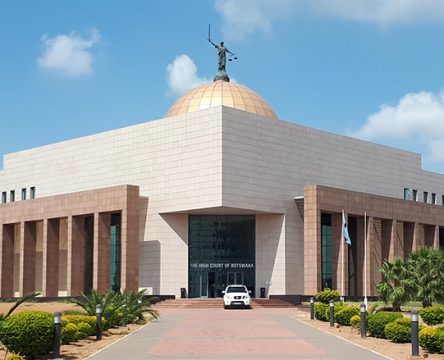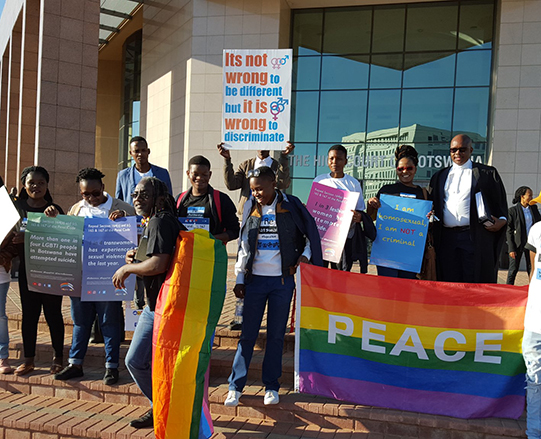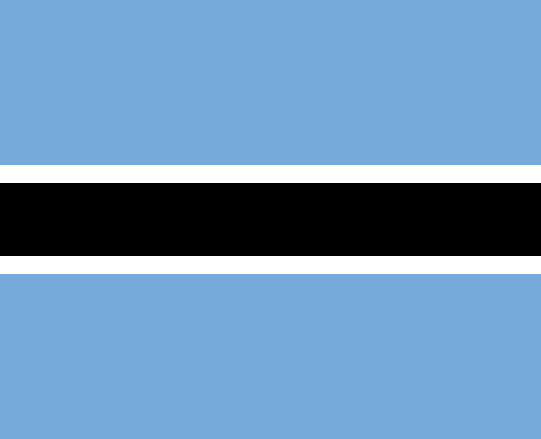In September 2016, complainant Letsweletse Motshidiemang, a gay man, challenged Sections 164, 165 and 167 of Botswana’s British colonial-era Penal Code, criminalising same-sex sexual acts. The organisation Lesbians, Gays and Bisexuals of Botswana (LEGABIBO) were amicus curiae in the case.
Section 164 of the Penal Code criminalises ‘Any person who, (a) has carnal knowledge of any person against the order of nature or (c) permits a male person to have carnal knowledge of him or her against the order of nature’ with a punishment of imprisonment up to seven years. Section 165 criminalises attempts to commit this offence with an imprisonment term of up to five years. Section 167 criminalises ‘any person who, whether in public or private, commits any act of gross indecency with another person’.
On 11 June 2019, the High Court of Botswana in Gaborone held that Sections 164(a) and (c), 165 and 167 were unconstitutional. In particular, the Court struck down Sections 164(a) and (c) and 165 as violations of Article 3 (liberty, privacy and dignity), Article 9 (privacy) and Article 15 (non-discrimination) under the Constitution of Botswana 1966. With regard to Section 167, the Court amended the provision to remove the word ‘private’.
Notably, the High Court overturned the 2003 Kanane v State decision. In Kanane the Court held that gay men and women did not represent a class that required protection under the Constitution. In Motshidiemang, the Court stated that “time has come that private same sexual intimacy between adults must be decriminalised”. It also held that the criminalising provisions “oppress a minority and then target and mark them for an innate attribute that they have no control over and which they are singularly unable to change”.
In 2021, following an appeal from the State, the case was heard in the Court of Appeal, in Attorney General of Botswana v. Motshidiemang & Ors. (2021).
Download the judgment



